
Lubricant – Nookleptia (1992)
After the initial solidification of the the sound of death metal (1988-1990) a number of up-and-coming bands caused it to, like the dendritic expansion of a leafed branch, to explore every possible combination with past elements and stylistic possibility. Among the products of that tendency was Finland’s Lubricant, who sound like a progressive death metal band hybridized with hardcore punk under the direction of a hard rock conductor. Like countrymen Sentenced produced on Amok, these bouncy songs use a melodic core to create two-part expansions, bouncing between not call and response but hypothesis and counterpoint. Riffing makes extensive use of dissonant chords, some voicings in contexts familiar in both black metal and emo, and strip death metal riffs of much of the downstrum-empowered, recursive rhythm complexity so that they ride on a few notes and the rhythms of their presentation like a hardcore band. Although goofy experimentation like spoken and sung vocals in opposition to death growls are now rarities, in part thanks to the overuse of this technique by dreaded nu-metal bands, they occur here with enough ingenuity to be presumed innocent and not MTV in intent. Yet style is only half of a band; the melodies and rhythms here are simple but unencumbered and often beautiful in their spiralling cycle around a fragment of vision, in a way reminiscent of both Ras Algethi and Discharge. They are not quite decisive enough to encapsulate the sensation of a generation or era as some of the greater bands did, but they achieve a powerful observational facility from the periphery. My guess is that this band was overlooked because of its bouncy hard rock rhythm and its tendency to structure songs around breakdowns that filter through past riffs like computer code comparing arrays and finally reduce to a simple riff measurably more poignant than its counterparts. In other words, this is not only unfamiliar ground for death metal listeners, but is less discretely concise like beaded water sliding down plastic sheeting, and therefore, harder to identify and appreciate.

Bethzaida – Nine Worlds (1996)
In both guitar tone and composition this resembles Eucharist with a death metal sense of percussion and tempo, spindly melodic lead lines arching through a rhythm to enforce it in offset, but borrows from the short-lived “dark metal” genre that was transitional between death and black (its most persistent artifact is the first Darkthrone album): cyclic arpeggiated riffs give way to either racing fire of chromatic progressions or looser, short melodies repeated at different intervals in the scale comprising the foundation of each piece. Like Dissection, there is a tendency to etch out a dramatically even melody architected across levels of harmony, and then to curl it back around a diminishing progression to achieve closure; while this is effective, it must be used sparingly to avoid audience saturation with its effect, and it isn’t here. What kept this band from the big time might indeed be something similar, which is its tendency to set up some form of constant motion and, after descending into it, failing to undergo dynamic change. Much of its phrasing celebrates symmetry between resolution and inception, creating a squeaky clean obviousness that in metal unlike any other genre becomes tedious fast, and there is like Dissection a tendency to break a melodic scale into a counter direction and a counter to that, then regurgitate it in the dominant vector, then its opposite, then in turn its antithesis, producing a flow of notes that like a river bends in order to go straight. Zoom back on the scale function, and view the album as a whole: like most postmodern art, it is replacing lack of internal strength (encouragement toward self-sacrificial or delayed-gratification values, e.g. heroism and adventure) with a surplus of external embellishment, including flutes dressing up elaborate versions of tedious patterns and keyboards. Like Dissection it achieves a sheath of immersive aesthetic, and like Metallica (occasional similarities in chord progression) it maintains an internally resurgent energy, but when one peels back this externality, there is less of a compelling nature here than a flawless but overdone, directionless aesthetic.

Depression – Chronische Depression (1999)
Although aesthetically this band resembles a more dominating version of the early percussive death metal bands like Morpheus (Descends) or Banished, in composition it is most like grindcore: one thematic riff repeated unless interrupted by detouring counterpoints, then a series of breakdowns and transitions working back to the point of harmonic inception and rhythmic wrapper of the original riff. Like countrymen Blood this band specializes in the simple and authoritative in roaring noise, but musical development from repetition is even sparser and the anthemic factor of repeating a motif at different tempos and key-locations wears thin after some time. Undeniably, this band have talent and apply it well, but are limited by their conception of music to make sonic art that while forceful is so repetitive that few outside those who delight in the shock of its pure and total deconstruction of music will listen again to these mostly two-riff songs. Vocals are of the guttural alternation with shrieking whisper type and rather than counteracting this effect, bring it into prominence, but that seems to be the intent — this band desire to become the unrelenting assault of early Napalm Death but with rigid and not “organic” chaotic structure, and thus they take a concept sometimes unknown and sometimes built as a subset of known variants (Dies Irae themes, monster movie music, old hardcore progressions) and hammer it home over a sequence of staggered tempos, interweaves with oppositional riffs, and rhythmic breaks. Underneath it all is the kind of sly iconoclasm and gleeful weirdness that comes naturally in times when one must be careful about which truths one tells unmasked. Probably this grinding death CD is the closest we will have in this era to an updated version of DRI/COC-style thrash, and true to this form, it incorporates a number of figures from hardcore music. This will not be for everyone and will not be heard every week, but for an approach to this ultra-deconstructed style, Depression are one of the better efforts on record.

Phlegethon – Fresco Lungs (1992)
Many of the early contributors to death metal were heavy metal fans who wanted to avoid the sickening glossy vocals, dramatic love songs, and moronically one-dimensional aesthetic of heavy metal, so they incorporated the aesthetic and artistic direction of death metal, but underneath made music that could compete with Van Halen if applied to FM radio. Phlegethon is one such act; like “Symphony Masses: Ho Drakon Ho Megas” from Therion, this is a heavy metal album that uses the riff salad wrapped around a narrative thematic development of death metal, accented with keyboards and unusual song structures, to create epic music that eschews the mainstream cheese. Each song is gyrationally infectious and yet understated, like throwing the grenade of an irresistible rhythm into a room and then skipping down the hall whistling (one track deliciously parodies techno). Keyboards guide the root notes of power chords but vary harmony for conclusion or emphasis. Song structures bend out of introductory material into a sequence of candidates for introduction or transition to verse and chorus, and the result is an architectural feel like that of fellow Finns Amorphis as the listener progresses between riffs of different shape and sonic impact, like a flash of light outlining the features of a vast room — similarly, there are lengthy offtime melodic fretruns highlighting descending power chord riffs as that band also used to great effect. Admirably, drums migrate through layers which silhouette the current riff in contrast and foreshadow adept tempo changes; vocals are low guttural death growls that stretch themselves to the point of fragmentation, spearing the beat in each phrase and decaying after each emphatic syllable to create a reference frame of surreal incomplete rhythm. The rampant creativity and pulsingly infectious rhythms of this CD give it presence which so powerfully hints at a more complete musical language that the intrusions of heavy metal-derived music often seem like dilutions, but it is clear from even this glimpse that the world missed out on the future evolution of this band.

Avathar “Where Light and Shadows Collide” (CD, 2006)
A cross between In Battle and Summoning, this band attempts to make epic music but in the uptempo style of black metal such as Mayhem or Abigor. Like The Abyss, this band wield such a lexicon of technique that tendencies in their music become evident early on and seem repetitive by the end of the album. For background listening it is preferrable to the disorganized noise and posing produced by the black metal underground, but one wonders if this is not like most art in the modern time good with technique/appearance but poor at confronting the inner world of meaning.

Order From Chaos “Dawn Bringer” (Shivadarshana Records, 1994)
At the nexus of several rising conceptual directions in underground music, Order From Chaos fuses them sublimely into a subconscious manipulation by music that remains stranded in the older generations of punk and metal by its refusal to integrate longer melodies; it is pure rhythmic pattern and song structure, a Wagnerian demonstration of a course of thought developed through the sensation represented by riffs that like scenes guide listeners through the acts of the drama. It is this theatrical sense that interrupts the verse-chorus spiralling of riffs layered with accompaniment of increasing intensity from drums and vocals and bass, with songs dropping to moments of presentation and equalization when forward action ceases and a quietude of sorts drops over the action. In this, like early Krieg, the music is an improvisational theatre acting out the raw id of human experience when that experience represents those brainy enough to see how modern society and its assumptions (order, legality, morality) are completely bankrupt, but it is a scream of protest and not, as is needed, a counter-construction. Thus while no piece of this is in error, the whole is discohesive and with a good augmentation could become far better; among Nationalist bands (it is fair to note allusions to nationalism on this record, with “Die Fahne Hoch” making an appearance on track two) Skrewdriver remains pre-eminent because they wrote melodic, expressive — while as cheesy, overblown and dramatic as those from the Ramones or the Sex Pistols — songs that gave people something to live for as much as a knowledge of what is lacking in our world. With luck in future albums, this band will approach structure with as much pure energy as they unleash here. Track fourteen (Golgotha) contains a riff tribute lifted from the nether moments of “Reign in Blood.”

Vordven “Woodland Passage” (CD, 2000)
Hearing this album is like running into Boston and screaming “The British are coming!” in 2006: completely irrelevant. A mixture of old Emperor and Graveland stylings, it is perfectly competent but by emulating the past, both fails to uphold that spirit and precludes itself from finding its own direction. We don’t need new styles; we don’t need “progress”; we do need music that has some idea of what it wants to communicate, and can make that experience meaningful. This sounds like retro or a coverband in that everything is bureaucratically plotted: after the keyboard interlude comes the pre-theme, then the main theme, then break for demonic scream and drum battery to drive it all home. Clearly better musicians than many of the original bands, Vordven are lesser artists and thus have less of interest to give us. It feels less dishonest to listen to Muzak versions of Metallica hits from the 1980s.

Warhorse “Warhorse” (CD, 2000)
Sounding like a hybrid between old Confessor and middle-period Motorhead, Warhorse is a rock band playing doom metal with a sensibility for both slow pumplike riffs over which vocals suddenly slow, causing a relative shift that makes the entire song seem to stand still, and the type of pick-up transitions and breakdowns for which both Motorhead and death metal bands are famous. In the sense of bands like Saint Vitus or Cathedral this band is intensely mated to the rock culture and its dramatic self identity, adding over it high pitched vocals that sound like a whisky-soaked Sigur Ros in an Alabama bar. For this reviewer it is a question of relevance: what does one need express in this style that would take a band beyond the level of background music for a local bar? However, among those who undertake this format, Warhorse keeps a sense of style and intensity, even if by appropriately keeping its horizons forshortened in the ambition department.

Revenge “Victory. Intolerance. Mastery.” (Osmose, 2004)
Although in fundamentally the same style as previous releases, the latest from Revenge improves upon it by simplifying the chaotic stew of impulses diverging into every conceivable direction, therefore achieving a greater coherence and thus listenability. That being said, the same problems that plague previous releases are here: distracting directionless percussion, riff salad, a tendency to deconstruct without a replacement ideal. However, by dropping all but the most necessary elements of their music, Revenge have come closer to making an expressive black metal album.

Ankrehg “Lands of War”
Oh, neat: someone hybridized Impaled Nazarene with Gorgoroth and made a band that balances between sawing punk riffs and trills of melodic scale fretruns. Having mastered that technique, this band was left neurotic and clueless as they attempted to find a direction; barring that, they settled on a generalized path and threw everything but the kitchen sink into it, creating songs that leap at every conceivable point of the compass but seize nothing. Their technique is to distract the listener with this constant stream of chaos and hope it is not noticed as irrelevant; with this reviewer, it was, and thus the listening session ended. Worse than shit, this is confusion masquerading as profundity.

Revenge “Triumph. Genocide. Antichrist.” (Osmose, 2003)
Whenever one is handed a piece of music or writing, it makes sense to ask, “What are the artistic aims of this work?” Art does not exist in a vacuum, much as conversation does not; there has to be some joy in it, something shared between listener and creator. Revenge is blasting drums that chase a pace with successive lapses and then catch-up intensifying speed, harsh harmonized vocals that surge overhead like rainbows of oil in floodwaters, and riffs of often high quality; like the first Krieg album however, it arrays these in an incoherent order which results in the stream of consciousness sensation without imparting greater wisdom of any form. As such, this album is a stepping back from what black metal achieved, which was an arch grace and continuity in expressing a meaning to darkness, and a descent into the disorganized deconstructionism that denotes modern grindcore (as if to underscore this, the drumming here is highly reminiscent of Derek Roddy’s work on Drogheda’s “Pogromist”). To communicate breakdown, one does not portray breakdown in its literal form, necessarily – here we see good raw material – powerful percussion, adroit riffcraft – converted into a melange of confusion by its lack of deliberation and planning. No single part of it has anything wrong with it. The whole is a death of ambition, of heroism, of tragedy and meaning.

Vinterland “Welcome My Last Chapter” (2003)
This band is like The Abyss a template of black metal technique recombined around the most fundamental songwriting techniques, but to that mixture it adds lifts from Gorgoroth and Sacramentum to make it a flowing but gracefully intricate and arcane metal style. Nothing here is bad and it listens well, but it manages less suspension of disbelief than The Abyss (first album; the second one is random riffs and screaming) because although its songs are well-written and flow expertly it is hard to find a statement to any of them; what are they about? They’re about being melodic black metal songs. Undoubtedly Vinterland is far better than almost all of what has been called “melodic black metal” since 1996, but it’s only because our standards have fallen that such a band is construed as good listening. Preferrable would be a simpler more honest band trying to communicate an experience rather than partake of membership; in this Vinterland and Deathspell Omega are similar in that while both are at the top of their genre in formal ability, neither captures the essence of this music because they are trying to be the music, not trying to be something that ultimately will express itself in music. Hoarse whispery Dimmu Borgir vocals dive and glide over sheeting melodic guitar riffs, replete with fast fretruns and descending arpeggiations; the band know when to break from meaty riffs into calming simplicity like a ship exiting rapids. Those familiar with black metal history will hear lifts from Ancient, Dimmu Borgir, Sacramentum, The Abyss, Satyricon and Sacramentum, as well as hints of At the Gates and later Emperor. It is not badly done, but that’s not the point: this CD never takes any direction but tries to use summarizes of past paths as a condensed variety show of black metal; while it is an enjoyable listen the first time, it does not hold up as these other bands have, as there is nothing to center all of this technique and its moments of beauty, creating the impression of a sequence of distractions instead of deliberate craftsmanship helping to reveal a secret beneath the skin.

Regredior “Forgotten Tears” (Shiver Records, 1995)
This band of highly talented musicians have created an album that is half excellence and half disaster by focusing too much on individual instruments, and thus failing to organize songs by composition instead of playing, have been forced to rely on stitching together disconnected pieces of music with two-part attention span grabbers: a repeated pattern to seize attention, and then a pause and an “unconventional” response to fulfil that expectation. If that is a desired compositional style, one wonders why this band did not simply make grunge music and derive actual profit from the endeavor? They mean well and play well — the acoustic instrumentals here are beautiful, many of the riffs top-notch in the slumberlike earthmoving simplicity of older Therion, and concepts for songs are great — but the final product is marred by its own showiness and awkward assimilation of different musical impulses. Squeals, offtime drum hits, dissonant guitar fills and rhythmic jolts do not move compelling music along; they advance by inches and drain away the energies that allow bands to make the world-redefining musical statements required for songs to be distinctive and expressive enough to be great. For those who like later Carcass, this band utilizes many of the same techniques and has similar technicality.

Sombrous “Transcending the Umbra” (CD, 2005)
Imagine Biosphere executed with the sensibilities of Dead Can Dance: the same implications of melody in sonic curve rising to full volume and then pulsing like a wave before disappearing to form a cycle, with songs arising from the piling of successive layers at offset rhythms on top of one another. It is slow, percussionless, delicate, and in part thanks to the heavy reverberations used, as melancholic as the echo of one’s lonely voice in an abandoned cellar. The more style-heavy music gets and the farther it gets from something that can be easily played on one or two acoustic instruments, paradoxically, the easier it gets to create once one has mastered aesthetic, and if this music has a weakness it is the tendency to use four-note melodies as the basis of a song and only occasionally complement them with others. Biosphere helpfully used found melodies and instrumentals of greater detail to do this; Sombrous could actually go further within their own aesthetic and layer keyboards as they have but give them more to play than rising or falling modal lines. It would also help to even further vary the voices/samples used here, as too many echoed stringplucks or keyboard throbs start to sound the same; sometimes, one slips too far into the mood generated and boredom sets in. Yet there is something undeniable here in both aesthetic and composition, in that unlike almost all “ambient” releases from the underground this has grace and a sense of purpose that unites these tracks into a distinct musical entity. It is not unwise to watch this band for future developments.

Emit/Vrolok “Split”
Emit is ambient soundscapes made from guitar noise, sampled instruments and silences; it is good to see this band branch out into a greater range and artistic inspiration, but they would do well to remember the listener should be both learning and enjoying the experience of listening: what differentiates art from philosophy is that art is made to be a sensual tunneling through knowledge, where philosophy is a description of knowledge. Vrolok is of the Krieg/Sacramentary Abolishment school of fast noisy guitars over drums that outrace themselves and then catch up with flying chaotic fills. Nothing is poorly executed, but this recording seems to be an artist’s impression of what his favorite bands would do; there are some nice touches like background drones and bent-string harmonics of a sickening nature, but to what end? If black metal has another generation it’s not going to be in retrofitting the past in form, but in resurrecting the past in content, even if all the aesthetics are (like with the early Norse bands) garbage Bathory/Hellhammer ripoffs.

Nightbringer “Rex Ex Ordine Throni”
This is a competent black metal release with a Darkthrone/Graveland hybrid melodic guitar playing style, kettledrum flying battery in the Sacramentary Abolishment canon, vocals like later Dimmu Borgir and composition that, like that of Satyricon, assembles all of the correct elements but does not understand melody intuitively enough to keep the illusion going. If this band delved more deeply into composition and had something to say, this CD would be one of the best of the year because its aesthetic formula is perfect, but its melodies go nowhere and barely match harmonic expectation between phrases, when they’re not outright symmetrical and blatantly obvious; in short, it falls apart when one goes deeper than skin-level. If an ambitious melodic thinker gets transplanted into this band or its members grow in that direction (a big leap), it will be a major contribution.

Polluted Inheritance “Ecocide” (CD, 1992)
This is one of those CDs that came very close and with a little more focus and depth of thought could have been a classic of the genre. It is death metal in a hybrid style that includes jaunty post-speed metal expectant rhythms, such that incomplete rhythmic patterns provide a continuity through our anticipation of the final beat established through contrast of offbeats as necessary, and sounds as a result somewhere between Exhorder and Malevolent creation, with verse riffs that resemble later work from Death. Songs operate by the application of layers of instrumentation or variation on known riff patterns in linear binary sequence, driven by verse/chorus riffs and generally double bridges that convey us from the song’s introduction to the meat of its dispute to a final state of clarity. Probably too bouncy for the underground, and too abrasive for the Pantera/Exhorder crowd, this CD is very logical and analytic to the point that it makes itself seem symmetrical and obvious. With luck this band will continue writing, and will offer more of the ragged edge of emotion or concept which could make this a first-class release.

The Tarantists “demo 2004” (CD, 2004)
From the far-off land of Iran comes a band with a new take on newer styles of metal. Incorporating influences from Metallica, progressive and jazz-influenced heavy metal, and some of the recent grunge-touched modern metal, the Tarantists render something true both to themselves and to metal as an ongoing musical culture. Prominent jazzy drums lead riffs that are not melodic in the “style” of constant melodic intervals popular with cheesy Sentenced-ripoff bands, but use melodic intervals at structural junctures in riffs that smoothly branch between phrasal death metal styled riffs and bouncy recursive heavy metal riffs. Over this lead guitar winds like a vine and favors the bittersweet sensation of melodies that decline in harmonic spacing until they trail off in melted tendrils of sound; riffing is most clearly influenced by the NWOBHM style hybridized with speed metal’s adept use of muffled and offtime strums to vary up what are otherwise harmonically static riffs. The Tarantists can achieve this melding of motion-oriented and pure rhythm riffing through their tendency to change song structure rapidly after having made their point, such that listening to this resembles going between different parts of a complex city, climbing stairs and finally entering a destination, then jumping back in the car for a manic deviation to another location. Highly listenable, this is impressive work for a demo band and represents a brighter future for metal than the kneejerk tedium of nu-metal or the repetition of past glories offered blankfacedly by the underground. It is unabashedly musical, and takes pride in interlocking melodic bass and lead guitar lines that exchange scale vocabularies as freely as rhythm. The only area that seems unresolved are the gruff Motorhead-style vocals, which might be either updated or discarded for pure singing, as there’s enough sonic distance within this work to support such a thing. The clearest influences here are Iron Maiden and Metallica, but a familiarity with recent metal of almost every genre is also audible. Of the recent demos sent this way, this is the one most likely to gain repeated listening because it focuses on music first and aesthetics second.

Beyond Agony “The Last of a Dying Breed” (CD, 2005)
Trying to mix the high-speed melodic riffing of black metal with the thunderous bassy trundle of mainstream death metal/nu-metal riffing, this band produce something that sounds like Acid Bath without the variation or singing, and resembles Pantera in its tendency to match riffs with clear poised expectant endphrases to rapped vocals and shuffle drumming. It’s a variation on a pattern seen many times before. It’s impossible to tell what kind of musical ability exists in these musicians because these riffs are rhythmic and aharmonic, since their melodic trills exist only to emphasize the E-chord noodling at the low end. Some Meshuggah fans might appreciate this, as might the hordes of people who think Slipknot and Disturbed are OK, but to an underground death metal fan there’s nothing here. These guys are clearly professional and have studied all of the other offerings in the field, and mixed in enough melody to distinguish themselves, and clearly these songs hold together better than your average nu-metal, but when one picks a dumbshit conception of music — which really, the entire Pantera/nu-metal genre is: music for morons to bounce around to while working off their frustration at having their democratic right to be spoiled and bratty constrained by reality — one limits oneself to making things that no matter how smart they get, have the dominant trait of being aimed at supporting and nurturing stupidity. I might even wax “open-minded” if I didn’t know that devolving metal into pure angry, pointless, rhythmic ranting has been the oldest tendency of the genre, and one that always leads it astray, because bands that do this have no way of distinguishing between each other except aesthetic flourishes and therefore end up establishing a competition on the basis of external factors and not composition. Some riffs approach moments of beauty but tend to come in highly symmetrical pairs which demand bouncy stop-start rhythms to put them into context. It’s all well-executed, but it’s standard nu-metal/late Pantera, with touches of Iron Maiden and Slayer. Should we care? Some of the celebrities who paid tribute to the late guitarist of Pantera/Damageplan noted that he had the ability to play well beyond the style which he’d chosen; it sounds like the same thing is evident here, and that seems to me a tragedy, because this style is so blockhead it absorbs all of the good put into it in its desire to provide a frustration condom for burnt-out suburban youth.

Fireaxe “Food for the Gods” (CD, 2005)
If you’ve ever wished that old-style heavy metal would be just a little less effete and self-obsessed, and take the literal attitude that hardcore punk had toward the world but give it that grand lyricism for which metal is famous, you might find a friend in Fireaxe. It’s low-tech, with basic production without the touches of tasty sound that make big studio albums so richly full, and it is often a shade short of where it needs to be in content – often repetitive or too basic in the logic that connects sections, as if it suffers from a surfeit of symmetry brought about by too much logical analysis – but it is what heavy metal could be if it grew up, somewhere between Mercyful Fate and Queensryche and Led Zeppelin, an epic style with a desire to be more of a kingshearth bard than a stadium ego-star. Brian Voth does the whole thing, using electronics for percussion and his trusty guitar, keyboards and voice to pull it off. His voice is thin like his guitar sound, and his solos are clearly well-plotted but do not let themselves go into chaos enough; his use of keyboards is reminiscent of a sparing take on Emperor. This 3-CD set is an attempted historiography of humanity and its religious symbolism, with a cynical outlook on such things as originally perhaps healthy ideas gone perverse and become manipulators. “On Truth and Lies in a Non-Moral Sense”? Perhaps, but this is earthier; in true heavy metal form, “Food for the Gods” delights in the literal manifestations of spacy otherworldly “truths.” Overall musical quality is high, and artistic quality is immaculate, but the CD is often designed less for the listener than to complete its thought cycle, and here it could use an edit; it is so analytical it is almost apoetic, and so literal it is almost a stab against symbolism itself (already in vogue for 90 years with the postmodernists, alas). My advice to Fireaxe would be to stop looking so deeply into causes and to start looking into spiritual solutions, e.g. to “sing” in the oldest sense of praising the beauty of life even in darkness, and lifting us up not into educated obligation but into ignorant but healthy spirits. Think of a bard singing by his cup of mead, looking for a way to console and encourage those who might on the morrow die in battlefields, all through the symbols, song and sense of ancient tales. This album could be cut to a single CD with proper editing gain some denseness and unpredictability it lacks; right now, although its patterns vary its delivery is of such an even mien that it is nearly predictable. The roots of excellent music are here, including Voth’s creative and playful leads, but need discipline into a more advanced and yet less progressive form for Fireaxe to have the full range of voice it requires. It is a welcome diversion from the insincere and manipulative stadium metal, and the guilelessly fatalistic underground music that shadows it (although it will not admit it), and while it waxes liberal in philosophy, does not go toward the eunuch extreme of emo; the heart is behind the music, and the flesh is competent, but somehow, the soul has not yet lifted its wings and flown, yet sits contemplating the right flightpath in radiant detail.

Gnostic “Splinters of Change” (5 song demo, 2005)
Upon hearing of the reemergence of pioneering Atheist drummer Steve Flynn, my curiousity was piqued immediately. I’d always appreciated his slippery brilliance behind the kit, forever giving the impression of struggling not to become caught in the tornado of bizarre rhythmic patterns he himself was creating. I was pleasantly surprised to discover that thirteen years between major recordings and immersion within the materialistic modern-day workplace had not dulled his creativity. In fact, his refreshingly brazen yet occultish approach to rhythmic structuralization is very reminiscent of his previous output, a fact which initially inspired hope. Further, Gnostic is composed of talented players. Former Atheist vocalist Kelly Shaefer produced the album. A concern nags silently: can this band escape the shadow of its predecessor?
As it turns out, no. The band has missed the fundamentally esoteric application of that theory which lends such timelessness to Atheist; say what you will about such a loaded term as “populist” being utilized in musical review, but this is merely music written to “sound good” from a quasi-prog perspective. The musical framework has each component part of the equation stepping all over every other part to prove that the instrumentalists are capable, losing the transcendence which Atheist channeled through their controlled chaoticism. Gnostic is all over the map structurally, with Flynn doing everything he can to hold the ship together at the seams. There is no message here, other than one-dimensional instrumentalism. We’ve already heard these same songs from the same bands for fifteen years now. It seems to this reviewer that this demo chalks yet another victory up to Redundant Mediocrity over Art. Consume, consume, consume. – blaphbee

Therion “A’arab Zaraq Lucid Dreaming” (Nuclear Blast, 1995)
It’s hell on metal bands who want to leave the underground. In trying to popularize their style, they usually kill whatever appeal it had, because those who enjoy their music have found truth somewhere in the alienation and whatever values the band managed to sustain under that assault. Further, the band usually confuse themselves, and end up prostrating themselves as whores, thus losing the respect of their fans. This CD is a collection of outtakes from Theli, a soundtrack and some Therion odds and ends that chronicle this band’s descent into commerciality and simultaneous rise in the esteem of metal fans as a whole. The first two tracks represent everything disgusting about trying to make popular neoclassical music, in that they focus first on making foot-stomping crowd-pleasing music, and adorn it with bits of classical allusion and the like, creating in the end a carnival of confusion. The next track, “Fly to the Rainbow,” is apparently a cover of an old Dio tune, which is amusing considering how similar it is to “The Way” from Therion’s epic second album. This is followed by one of the cheesiest Iron Maiden covers ever, with overdone vocals drowning out the subtlety of the original, and a Running Wild
song that comes across as blockheaded, but is less dramatically re-enacted, and therefore is more welcome. It sounds very much like punk hardcore with a metal chorus. Next is an off-the-cuff cover of “Symphony of the Dead,” from the second album as well, but its mix emphasizes the keyboards to the point where it becomes muzak. Good song, terrible version, and as fully meaningless as the Emperor keyboard-only Inno A Satana. The band have lost their grasp of what made their earlier material great, that it blended the raw and the beautiful, not that it standardized itself for radio airplay as this CD clearly does. All finesse is gone, all artistry, and what replaces it is the populist heavy metal mentality. There’s no class to this, or self-respect, and while any of its elements are quite powerful, the whole is tediously directionless. This syndrome blights the remaining Therion tracks on this CD, which then takes us to the soundtrack portions – these are actually promising. Like a synthesis between Dead Can Dance and Summoning, these are wandering keyboard background musics that maintain a mood and are kept in check by the need to be less disruptively attention-seeking. Although plenty of cliches and obvious figures work their way into this music, it’s clear that (were Swedes to control Hollywood) soundtracks are where the “new” Therion belong.

Aletheian “Dying Vine” (Hope Prevails, 2005)
This album demonstrates how if you mix great ingredients randomly, you end up with something disgusting. About half of the riffs on this album are excellent, and the sense of rhythm the band has is wonderful. But it’s garish, gaudy and overblown. Like a metalcore band, they mix riffs in a merry-go-round of directionless ideas, never actually stating anything. In this case the riffs are of the melodic Swedish death metal meets technical speed metal style, with influences from “modern metal” and showboat heavy metal. Any one part of this could be great, but it says nothing and thus ends up being random elements stitched together in a circus show of diverse and incompatible fragments of ideas. Some goofy modern touches, like synthesized voices, put nails in the coffin. There’s a lot to like here but the whole is not worth loving. My advice to these dudes: meditate and work on your band politics, because the raw material in this album if presented differently would be listenable, but right now it’s a technical mash that has no artistic or aesthetic statement.

Harkonin “Sermons of Anguish” (Harkonin, 2005)
The good news is that Harkonin have good concepts, write good riffs, and understand something of gradual mood shifts. The bad news is that they compress this process, remove the anticipation, and hammer it out in repetitive endurance tests that hide the actual talent of the members of this band. None of the elements are bad; in fact, they’re far above average, and the band has an aesthetic vision – the CD skirts metalcore but incorporates some of the newer urban and rock influences into metal – that outpaces most of their contemporaries. However, they need to find some inner calm, and let it out slowly, and discover the poetry of their own vision, as right now, this album is unrelenting violence that becomes perceived as a single unchanging texture because of its emotional disorganization. Luckily this experienced band has time to take some of their more intense moments of riffing and put them at the end of each song, then re-arrange the other riffs (and maybe develop them by another layer, meaning for each good riff, split out two complementary ones that can resolve into it, Suffocation style) to lead up to that point. If they do that, they will be on the path toward conveying meaning through their music – right now, what it conveys is abrasion, and too much of that will pass in the listener’s mind into a sense of unchanging mood.

Dug Pinnick “Emotional Animal” (Magna Carta, 2005)
Former King’s X member comes out with new album. Any guesses? It sounds like a heavier, groovier King’s X, which seems to be an attempt to make metal sound more like rock music. It’s jazzy and funky, and has some grunge-meets-prog metal riffing, but on the whole, the composition is the same stuff that gets played on the radio. Pinnick would do better applying his talents to something fully proggy like Gordian Knot.

Aphotic/Dusk “Split” (Cursed Productions, 2005)
Like most releases from Cursed Productions, this CD showcases regular guy songwriting enclosed in an unusual form. Aphotic is a fusion of soundtrack doom metal like My Dying Bride and Katatonia, fused with a progressive edge like that of Gordian Knot, creating a listenable package with plenty of depth to its instrumentation. Many of these riffs sound like something borrowed from a Graveland album, but on top of the basic guitar, flourishes of lead guitar and synthesized instruments accent the dominant theme, as does offbeat guitar playing with an emphasis on the internal rhythms for which metal is famous. Although these songs generate a great deal of atmosphere, and are at heart hook-laden and listenable to an extreme, they may be too sentimental for progressive rock fanatics and too straightforward for early 1990s black metal fans. An underpinning of old-fashioned foot-stomping heavy metal may make these popular in the contemporary metal audience, and if there’s any criticism here, it’s that this band could give their instrumentalism greater reign. Dusk, on the other hand, is a much clearer fusion of doom metal and classic heavy/power metal, with growling voices guiding bouncy riffs to their targets. It is proficient but on the whole not fully developed enough to either have its own voice or rise above metal cliche, but it is inoffensive listening especially for one who wouldn’t mind being locked in a room with Cathedral and Prong re-learning their formative material.

Odious Sanction “Three Song Demo” (2005)
These few cuts from the upcoming album “No Motivation to Live” feature the talents of Steve Shalaty, now drumming for Immolation, but that’s about the whole of their appeal. Much like his work in Deeds of Flesh, Shalaty’s percussion is ripe with a precision interplay between double bass and an ongoing breakdown of fills, but the music over it is numbingly empty of anything but relentless interrupted cadence rhythm. Somewhere between metalcore and deathgrind, it lacks most dimensions of harmony and any of melody, resulting in a whirring and battering mechanistic noise that offers little to the experienced listener.

Emit “A Sword of Death for the Prince” (2005)
The microgenre of blacknoise is what happens when one fuses the abrasive Beherit-style cacophonous assault of minimal black metal and the droning sonic collages of acts like Mz. 412 or Claustrum. Where this CD is excellent are the moments when being shockingly extreme and unlistenable are forgotten, and overlapping patterns of melodic or textural fragments knot the listener into moods of darkness and contemplation. Here, Emit has found an outlet for its style, as the guitar is liberated from rigid hardcore/black metal style riffing and can focus on the mournful and regal use of ambient, repetitive melody, hiding it amongst distorted voices and sampled aural experiences of modern life. The pretenses of black metal should be discarded, as this release has more in common with Tangerine Dream and Godflesh than anything else. If this reviewer has anything to suggest, it is that this band not hold itself back, but plunge forward in the direction it is exploring, and use its dense layers of sonorous noise-guitar and vocals to develop a sense of melody and composition, as that is the strength of both this band and non-instrumental music in general, and — well, nothing’s been “shocking” for some time.

P – The Larch Returns (Music Abuse, 2005)
As metal continues, like a snowball rolling over open ground it assimilates all that went before it and thrusts it forward in recombinations hoping to find another powerful aesthetic voice for the eternal metal spirit (which also picks up details, but rarely additions, to its sense of being). P is the side project of Alchemy member P and can be described as a black metal-informed death-doom band, with influences primarily in the Asphyx and Cianide camp with touches from Paradise Lost and Master. Its strengths are its booming, bassy, cinderblock-simple riffs that thunder through repetition in a trancelike resonance. Where many simple riffed bands can be irritating, these are sustaining. Songs move from one perspective to a final response to it without ado because the goal of this music is to carve tunnels of explosive sound through the rock face of silence, enacting mood more than drama. P needs to work on its rhythmic transitions and vocals, the former being stiff and the latter overacted; the local-band style of shout/rasp does nothing for a listener who might prefer to not be reminded of vocals at all should the question arise. Influence might also be gained by pacing riffs, especially introductory ones, differently to radically offset each other and effect a smoother convergence of forces. Three songs are of solid death/doom, and then there’s junk — an Aldo Nova cover that is unconvincing, a duet with a young girl that is amusing, and a comic song about baseball that dilutes the mood — but this is followed by a final instrumental that is beautiful like an unfocused eye, being a careless-sounding collection of sounds so natural that it is both unnoticed and profound in its emotional impact. Should this band ever decide to take a direction and master it, they will be a potent force in the death/doom field.

Alchemy – Alchemy (Alchemy, 2004)
Reminiscent of Abyssic Hate and Xasthur and I Shalt Become, Alchemy creates Burzum-styled ambient drone in a song format that seems inspired by Dark Funeral more than anything else. It is elegant and embraces the listener but beyond getting into said mood, goes nowhere: it is not directionless but each song is monodirectional to the point it might not be said to be a narrative or even statement as much as observant glimpse. If this band wishes to go to the next level, it needs to divide the formative material of each song into two parts, and layer the first one for 2/3 of the song until an apex, at which point it can switch into the conclusion for the last third and be more effective and satisfying to a listener. Far from incompetent, it is best viewed as something in transition.
One Liners
Toil – Demo I
Slick in ability and appearance but boring as rocks except for the enlightening, faithful, identical cover of Graveland’s “Thurisaz.”
Cannibal Corpse – Kill
A formula continuing the tradition of getting more like rap music and Six Feet Under, so is basically like every other Cannibal Corpse album. That alone is reason to avoid it, unless you like music designed to coordinate the head motions of retarded children being electrocuted.
No CommentsTags: alchemy, aletheian, ankrehg, aphotic, avathar, bethzaida, beyond agony, cannibal corpse, depression, dug pinnick, dusk, emit, fireaxe, gnostic, harkonin, lubricant, nightbringer, odious sanction, order from chaos, p, phlegethon, polluted inheritance, regredior, revenge, sadistic metal reviews, sombrous, the tarantists, Therion, toil, vinterland, vordven, vrolok, warhorse
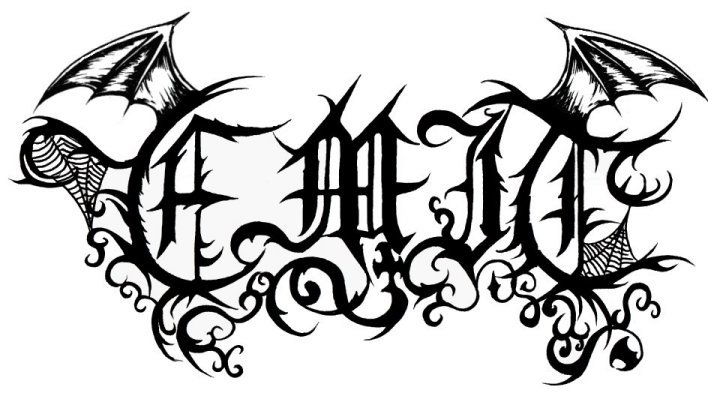
 I doubt you’ll be surprised by my answer here, but no, of course it’s not at all important. Technique is merely a means through which you can express something. Lack of technique or limited musical ability just means you’re more restricted (or perhaps freer in some cases) about what you can do. Someone lacking musical ability or training couldn’t easily write or perform music like that of Morbid Angel for instance, but then some forms of expression don’t require that level of instrumental skill. Furthermore, technical ability is absolutely worthless if lacking any idea of composition. I think someone who has no real technical ability as such, may nevertheless still have an innate (possibly an unrealised, subconscious) understanding of melody and form, and thus be able to create good music. I don’t understand why it is that low technical skill is nearly always seen as a valid criticism by those who “know about music”. It’s like with these lists you see of “100 greatest guitarists ever”, ok, but how many of them made music that you actually give a shit about? Darkthrone were quite talented musicians but their best music isn’t hard to play to say the least. I bought a new guitar recently (an ostentatious act for me, but the model is not in itself ostentatious) and tried it out in the shop beforehand. I suppose that people usually have a long, showy masturbation session in music shops when trying out new instruments, but I just wanted to see how it felt to play and so on. I’ve never really wanted to drastically improve my playing skills, not through laziness or lack of ambition but because I actually fear losing my unfettered ability of expression. Over time I’ve improved gradually anyway as is natural, but I’m fond of the lack of refinement and “first take” freshness that can be found in recordings of people like Ildjarn or old Mutiilation. It lends a certain immediacy that becomes integral to the overall effect that the song produces upon the listener. For me it’s similar to the curious power of crude woodcut illustrations, which although primitive, nevertheless convey what is intended. I’m not advocating the old punk rock ethos of “anyone can have a go”, because plainly, not everyone has what it takes to create something meaningful or worthwhile. Indulge me and allow me to quote a favourite passage from a controversial figure of 1960’s England; “practically everyone believes they could write a book or compose a song if only they put their mind to it. They believe this simply because they can easily comprehend the finished products of others. It is not until they attempt the act of creation themselves that they become aware of their own limitations, lack of imagination, abysmal powers of self-expression and how unaccustomed they are to thinking deeply about anything at all. Becoming aware of the vast gap that exists between understanding and personal creativity – and the intellectual effort required to capture and express a complex idea in simple terms – is humiliating”. Technical prowess as such doesn’t necessarily hinder the creation of (good) art, but stupidity and a lack of anything to say certainly does. Just look at the music section of myspace.
I doubt you’ll be surprised by my answer here, but no, of course it’s not at all important. Technique is merely a means through which you can express something. Lack of technique or limited musical ability just means you’re more restricted (or perhaps freer in some cases) about what you can do. Someone lacking musical ability or training couldn’t easily write or perform music like that of Morbid Angel for instance, but then some forms of expression don’t require that level of instrumental skill. Furthermore, technical ability is absolutely worthless if lacking any idea of composition. I think someone who has no real technical ability as such, may nevertheless still have an innate (possibly an unrealised, subconscious) understanding of melody and form, and thus be able to create good music. I don’t understand why it is that low technical skill is nearly always seen as a valid criticism by those who “know about music”. It’s like with these lists you see of “100 greatest guitarists ever”, ok, but how many of them made music that you actually give a shit about? Darkthrone were quite talented musicians but their best music isn’t hard to play to say the least. I bought a new guitar recently (an ostentatious act for me, but the model is not in itself ostentatious) and tried it out in the shop beforehand. I suppose that people usually have a long, showy masturbation session in music shops when trying out new instruments, but I just wanted to see how it felt to play and so on. I’ve never really wanted to drastically improve my playing skills, not through laziness or lack of ambition but because I actually fear losing my unfettered ability of expression. Over time I’ve improved gradually anyway as is natural, but I’m fond of the lack of refinement and “first take” freshness that can be found in recordings of people like Ildjarn or old Mutiilation. It lends a certain immediacy that becomes integral to the overall effect that the song produces upon the listener. For me it’s similar to the curious power of crude woodcut illustrations, which although primitive, nevertheless convey what is intended. I’m not advocating the old punk rock ethos of “anyone can have a go”, because plainly, not everyone has what it takes to create something meaningful or worthwhile. Indulge me and allow me to quote a favourite passage from a controversial figure of 1960’s England; “practically everyone believes they could write a book or compose a song if only they put their mind to it. They believe this simply because they can easily comprehend the finished products of others. It is not until they attempt the act of creation themselves that they become aware of their own limitations, lack of imagination, abysmal powers of self-expression and how unaccustomed they are to thinking deeply about anything at all. Becoming aware of the vast gap that exists between understanding and personal creativity – and the intellectual effort required to capture and express a complex idea in simple terms – is humiliating”. Technical prowess as such doesn’t necessarily hinder the creation of (good) art, but stupidity and a lack of anything to say certainly does. Just look at the music section of myspace. The sound of nearby church bells, rain on the rooftops and wind in the trees is perhaps the greatest ambient music I’ve heard and has influenced me more than anything else. Some have said that the Hammemit album reminded them of work by Brian Eno and he is indeed quite a visionary, though I wouldn’t agree that he was much of an inspiration to me. I like Tangerine Dream a lot, and anything that I like a lot tends to be assimilated somehow into what I do, but there’s no conscious influence from them either. My music is mainly based around the guitar, so two particularly inspirational guitarists for me would be Snorre Ruch (of Thorns) and John Dowland, the latter being a lutenist rather than guitarist but the principle is similar. I think my influences are more in terms of ethos and aesthetic than anything concrete in form.
The sound of nearby church bells, rain on the rooftops and wind in the trees is perhaps the greatest ambient music I’ve heard and has influenced me more than anything else. Some have said that the Hammemit album reminded them of work by Brian Eno and he is indeed quite a visionary, though I wouldn’t agree that he was much of an inspiration to me. I like Tangerine Dream a lot, and anything that I like a lot tends to be assimilated somehow into what I do, but there’s no conscious influence from them either. My music is mainly based around the guitar, so two particularly inspirational guitarists for me would be Snorre Ruch (of Thorns) and John Dowland, the latter being a lutenist rather than guitarist but the principle is similar. I think my influences are more in terms of ethos and aesthetic than anything concrete in form.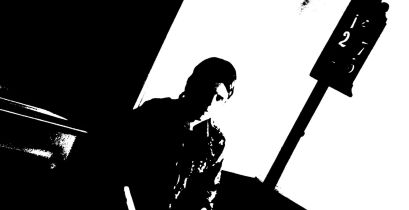 Everything has to die. I feel that like the world itself, black metal could have remained something brilliant, but stupid, shallow people and commerce ruined it. Concerning black metal (but not only that), I think most people including many who “were there” only see an idealised version of reality. Basically they see a relatively brief outburst of creativity and good intentions contained as a single neverending era and not as a finite period of innovation witnessed over time, followed by noticeable decline and inevitable death. I imagine citizens of the Roman Empire in its last days felt that way. Maybe Americans feel like that. People need a sense of continuity and belonging in order to feel secure and black metal is now a boring youth subculture like any other, not an evolutionary artistic movement. It’s about clothes, symbols, scene orthodoxy and total lack of substance for the most part. It’s hard to admit that the dream is over, that something has come to the end of its lifespan. The people who refuse to recognise that are usually those with the most to gain from its continuation and such people are dangerous because they prevent real progress from being made. But those who do acknowledge it are the first to rise from the ashes and forge something new. When an old, beautiful and much loved building falls down, the average guy says “I’ll rebuild this building, it’ll not be quite as good as before but it’ll keep the spirit of the old building alive”. But a radical, visionary architect says “I’ll rebuild this building, and I’ve a few ideas of my own this time”. However there are quite a few people out there who think of themselves as doing something new and original, but who actually aren’t. Playing a saxophone or tambourine or banjo or flute in a black metal context doesn’t necessarily make you a creative genius (in fact I’m damn sure it doesn’t). To cite an example I’ve used before, Darkthrone were obviously a positive evolution from Bathory and Celtic Frost, and to continue the architectural metaphor; are the difference between doric and ionic columns. In other words you don’t need to do anything completely new to be original, you just need to look at what came before in a new light, which is easier said than done of course.
Everything has to die. I feel that like the world itself, black metal could have remained something brilliant, but stupid, shallow people and commerce ruined it. Concerning black metal (but not only that), I think most people including many who “were there” only see an idealised version of reality. Basically they see a relatively brief outburst of creativity and good intentions contained as a single neverending era and not as a finite period of innovation witnessed over time, followed by noticeable decline and inevitable death. I imagine citizens of the Roman Empire in its last days felt that way. Maybe Americans feel like that. People need a sense of continuity and belonging in order to feel secure and black metal is now a boring youth subculture like any other, not an evolutionary artistic movement. It’s about clothes, symbols, scene orthodoxy and total lack of substance for the most part. It’s hard to admit that the dream is over, that something has come to the end of its lifespan. The people who refuse to recognise that are usually those with the most to gain from its continuation and such people are dangerous because they prevent real progress from being made. But those who do acknowledge it are the first to rise from the ashes and forge something new. When an old, beautiful and much loved building falls down, the average guy says “I’ll rebuild this building, it’ll not be quite as good as before but it’ll keep the spirit of the old building alive”. But a radical, visionary architect says “I’ll rebuild this building, and I’ve a few ideas of my own this time”. However there are quite a few people out there who think of themselves as doing something new and original, but who actually aren’t. Playing a saxophone or tambourine or banjo or flute in a black metal context doesn’t necessarily make you a creative genius (in fact I’m damn sure it doesn’t). To cite an example I’ve used before, Darkthrone were obviously a positive evolution from Bathory and Celtic Frost, and to continue the architectural metaphor; are the difference between doric and ionic columns. In other words you don’t need to do anything completely new to be original, you just need to look at what came before in a new light, which is easier said than done of course.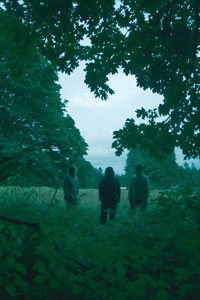
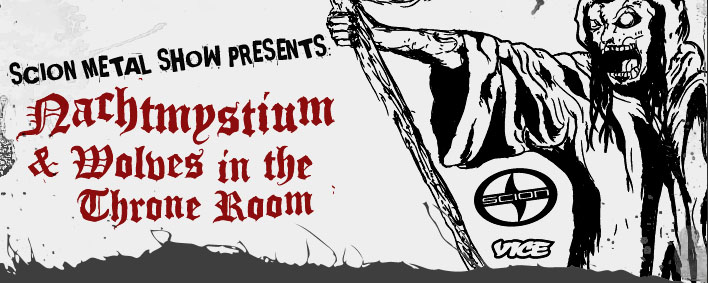
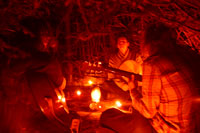 Black metal (and heavy metal in general) seem to share many values with Romantic art and literature from two centuries ago, right before Nietzsche began writing: reverence for nature, belief in a transcendental but not dualistic life, independence from humanist morality, desire to create the beautiful and eternal, searching for truth with the self as the lens but not the focus. Do you find these prevalent in yourself and your influences, or is something else your driving force?
Black metal (and heavy metal in general) seem to share many values with Romantic art and literature from two centuries ago, right before Nietzsche began writing: reverence for nature, belief in a transcendental but not dualistic life, independence from humanist morality, desire to create the beautiful and eternal, searching for truth with the self as the lens but not the focus. Do you find these prevalent in yourself and your influences, or is something else your driving force?
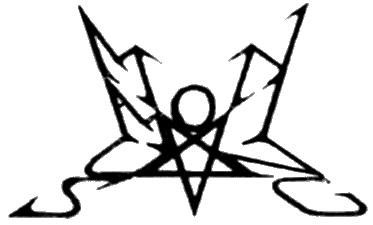 When black metal went more toward an orthodoxy that by nature of emphasizing its strengths, simplified its technique to the point of crumbling complexity, Summoning went another direction, and made slower, reverent music about a former (and possibly future) time of honor and conflict. In the history of metal, Summoning represents one of the more potent variants of ambient metal and an encouraging aesthetic for anyone tired of modern time. Protector, one half of the dynamic duo that Summoning became, went on to participate in several other projects focusing on a classic theme of black metal: an ambient consciousness from which a sense of beauty and thus meaning in life emerges.
When black metal went more toward an orthodoxy that by nature of emphasizing its strengths, simplified its technique to the point of crumbling complexity, Summoning went another direction, and made slower, reverent music about a former (and possibly future) time of honor and conflict. In the history of metal, Summoning represents one of the more potent variants of ambient metal and an encouraging aesthetic for anyone tired of modern time. Protector, one half of the dynamic duo that Summoning became, went on to participate in several other projects focusing on a classic theme of black metal: an ambient consciousness from which a sense of beauty and thus meaning in life emerges.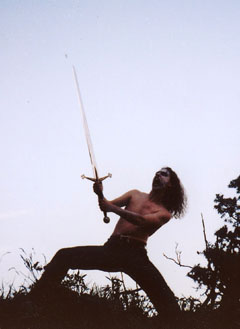
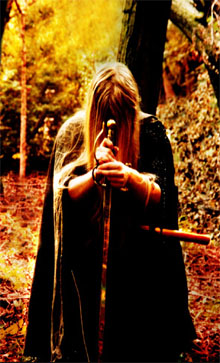 I was never really in any community. When I started listening to metal music at the age of 15 I think I was almost the only one who listened to that music in my school and for a long times I did not know a single person that did not consider that kind of music as pure noise. The same goes for dark electronic music; I am not really in contact with people who are into that music as well and I discovered it on my own as well. And I think I don’t need any communities to make my music, I rather prefer the possibilities that keyboards offer to be able to make music alone without being dependent on a band. Of course, I like to talk about music as well, but for me more than two people in a band is often more disturbing than useful and is the reason for many band splits.
I was never really in any community. When I started listening to metal music at the age of 15 I think I was almost the only one who listened to that music in my school and for a long times I did not know a single person that did not consider that kind of music as pure noise. The same goes for dark electronic music; I am not really in contact with people who are into that music as well and I discovered it on my own as well. And I think I don’t need any communities to make my music, I rather prefer the possibilities that keyboards offer to be able to make music alone without being dependent on a band. Of course, I like to talk about music as well, but for me more than two people in a band is often more disturbing than useful and is the reason for many band splits.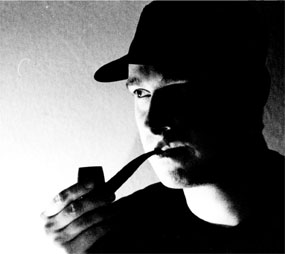
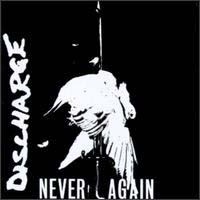
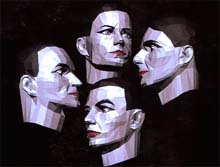
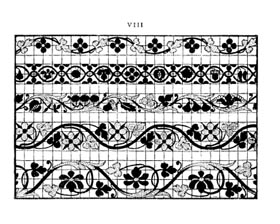
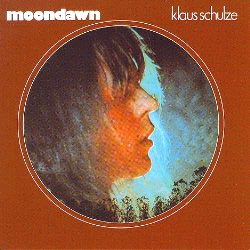
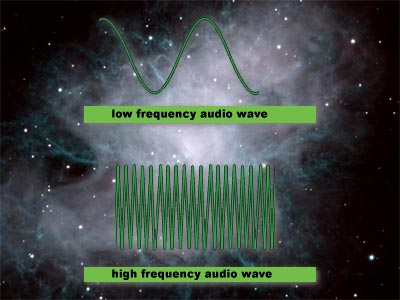
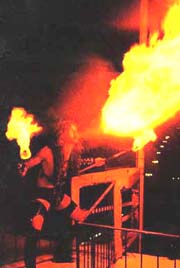
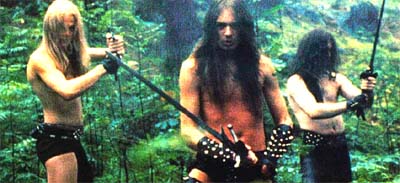
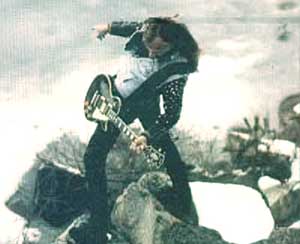
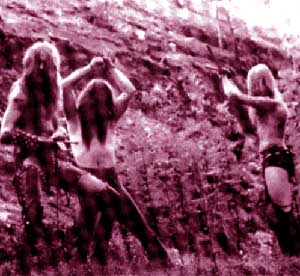
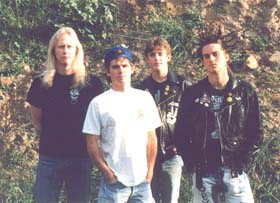
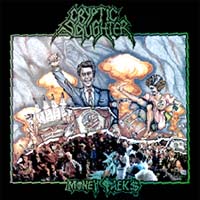
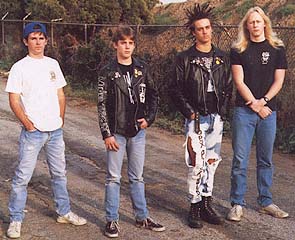 Do young people today face a different world than young people of previous generations? How will this affect their music and the ideas they associate with the sounds they are making?
Do young people today face a different world than young people of previous generations? How will this affect their music and the ideas they associate with the sounds they are making?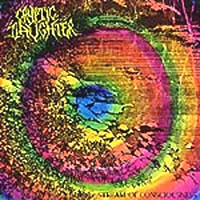 I think that Napster and the like was a good thing for music. But it was especially crucial to the relatively unknown bands because it helped to get their music out there. Back in 1985, what held the underground together was a network of hardcore tape traders. They circulated hundreds of live shows and demos and helped bands like Cryptic get on the map. No record stores would carry a demo, even if you could somehow get it distributed. Many fans obtained our tapes by trading through the mail, and of course didn’t pay us for them. But the free publicity was well worth whatever we lost in short term profits. It got a buzz going, and pretty soon we were getting contacted from bands, labels, and fans who otherwise never would have heard of us. As far as major labels go, they’ve been bending over their bands and the fans for decades now so I’ve got no sympathy whatsoever. And besides, when I was a kid, I always bought the records I really liked and borrowed the rest from my friends and taped them. It’s the same principal. If you want it but don’t want to pay for it, you can always get it somehow.
I think that Napster and the like was a good thing for music. But it was especially crucial to the relatively unknown bands because it helped to get their music out there. Back in 1985, what held the underground together was a network of hardcore tape traders. They circulated hundreds of live shows and demos and helped bands like Cryptic get on the map. No record stores would carry a demo, even if you could somehow get it distributed. Many fans obtained our tapes by trading through the mail, and of course didn’t pay us for them. But the free publicity was well worth whatever we lost in short term profits. It got a buzz going, and pretty soon we were getting contacted from bands, labels, and fans who otherwise never would have heard of us. As far as major labels go, they’ve been bending over their bands and the fans for decades now so I’ve got no sympathy whatsoever. And besides, when I was a kid, I always bought the records I really liked and borrowed the rest from my friends and taped them. It’s the same principal. If you want it but don’t want to pay for it, you can always get it somehow.
